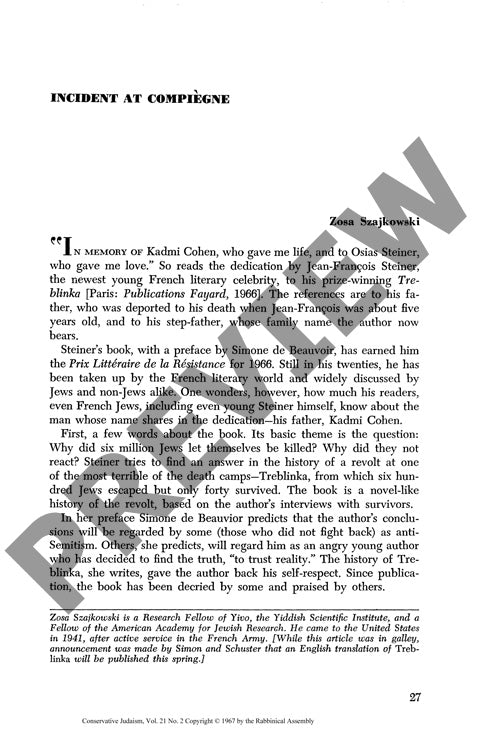Incident at Compiegne
Couldn't load pickup availability
In December 1941, as approximately 1,000 Jewish intellectuals faced internment at Compiègne concentration camp, a profound ideological divide emerged between those embracing and rejecting their Jewish identity. At the heart of this tension stood Kadmi Cohen, a Franco-Jewish lawyer whose rare publication "Massada: Discours des Camps de Concentration" and camp lectures challenged the prevailing assimilationist mindset among French Jews. Drawing on camp records, survivor testimonies, and Cohen's published works, this research reveals how Jewish intellectuals maintained opposing ideological stances even within concentration camp walls. The "confiants" - assimilationists who viewed persecution as temporary - continued to prioritize their French identity and sometimes blamed foreign-born Jews for anti-Semitic persecution. In contrast, Cohen's "Massada" club promoted Jewish consciousness and resistance, reflecting broader conflicts between assimilationist and Zionist perspectives in French Jewish communities during 1941-1944. This historical context proves crucial for understanding the later controversial work of Cohen's son, Jean-François Steiner, author of "Treblinka" (1966). The findings suggest that oversimplified narratives about Jewish responses to persecution stem partly from insufficient documentation of these complex ideological struggles during the Holocaust period.

More Information
-
Physical Description
-
Publication Information
Published 1967
ISBN
-
Publication Credits
Zosa Szajkowski

